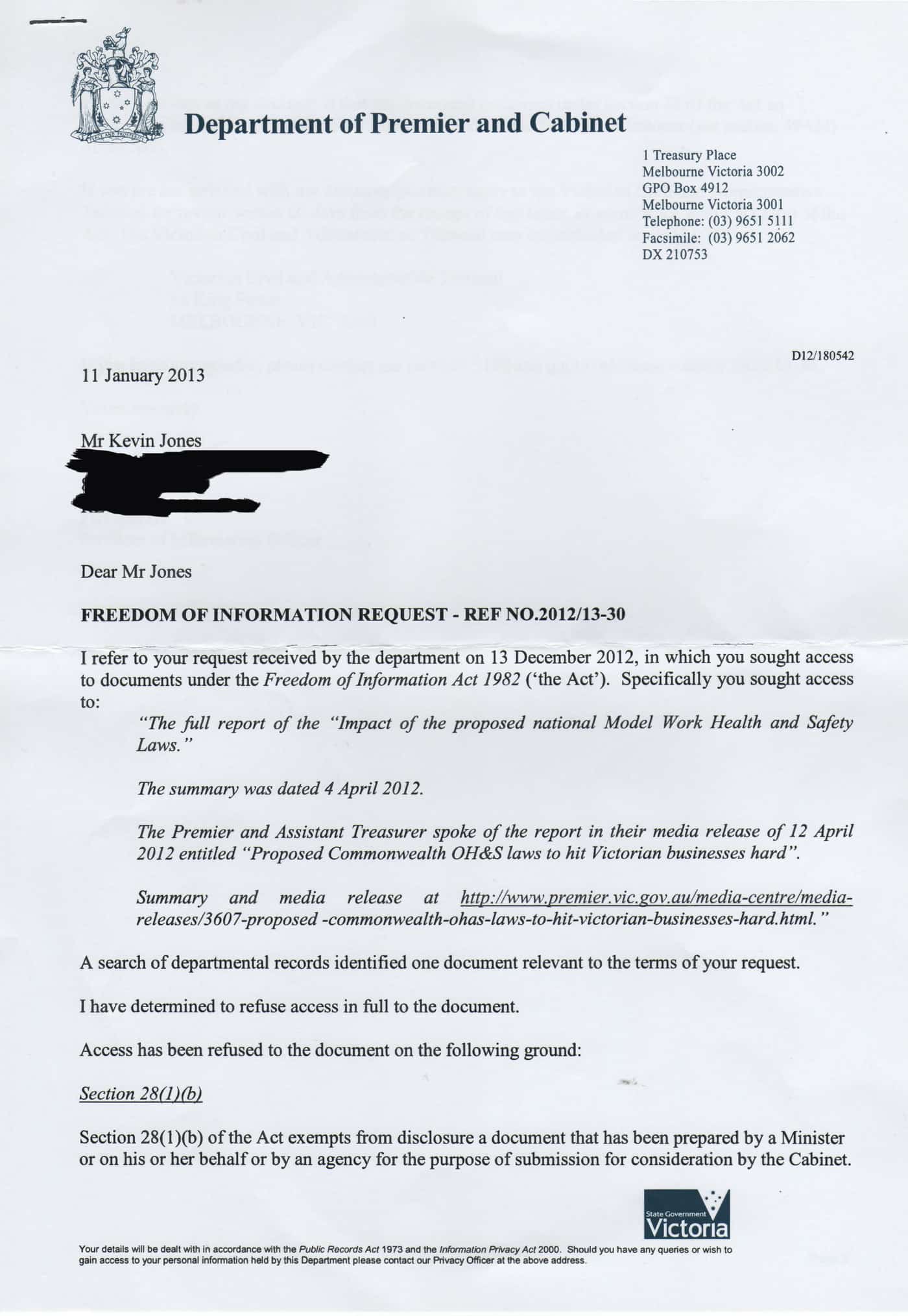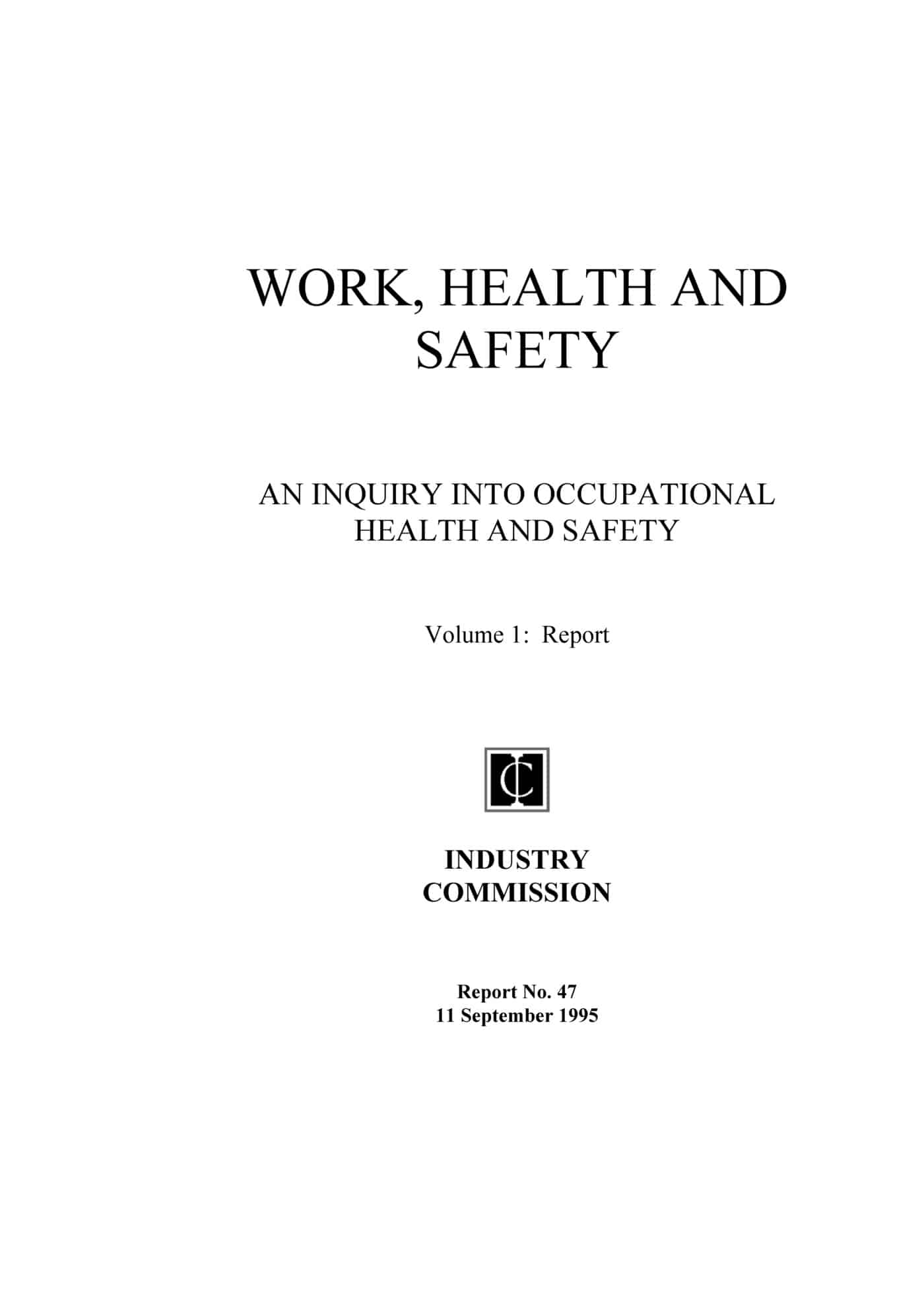 In Australia and the United Kingdom, workplace health and safety compliance has been considered a prominent element of allegations of business “Red Tape“. On 21 January 2013, Victoria’s Treasurer, Kim Wells, announced new guidelines into red tape in that State’s government authorities and regulators. Wells’ media release states:
In Australia and the United Kingdom, workplace health and safety compliance has been considered a prominent element of allegations of business “Red Tape“. On 21 January 2013, Victoria’s Treasurer, Kim Wells, announced new guidelines into red tape in that State’s government authorities and regulators. Wells’ media release states:
“Stage one of the reform will focus on the Victorian WorkCover Authority (VWA), VicRoads, Environment Protection Authority, Consumer Affairs Victoria and the Victorian Commission for Gambling and Liquor Regulation.” [emphasis added]
Wells also says that the Red Tape Commissioner, John Lloyd, will administer the system which runs like this:
“Ministers will issue statements of expectations to key regulators which will require them to outline by 1 July 2013 how they intend to reduce red tape. Our aim is to see regulators reduce the cost of high-impact or high- Continue reading “Red Tape Commissioner starts work on reform including OHS”



 A lot of recent discussion of the impacts of workplace safety and productivity has centred on the Productivity Commission’s “
A lot of recent discussion of the impacts of workplace safety and productivity has centred on the Productivity Commission’s “ In 2012 many countries have been required to pursue economic austerity measures. A national or international economy rarely has any direct effect on safety management but the current economic status has led to an increase in harsh, or strong, political decisions and some of these decisions will affect safety management and professionals. One obvious manifestation of political safety decisions is the UK Government’s decision to allow small businesses to step outside its occupational health and safety (OHS) laws in its pursuit of reducing supposed “
In 2012 many countries have been required to pursue economic austerity measures. A national or international economy rarely has any direct effect on safety management but the current economic status has led to an increase in harsh, or strong, political decisions and some of these decisions will affect safety management and professionals. One obvious manifestation of political safety decisions is the UK Government’s decision to allow small businesses to step outside its occupational health and safety (OHS) laws in its pursuit of reducing supposed “ In 2012, the Victorian Government introduced a
In 2012, the Victorian Government introduced a